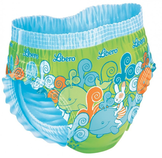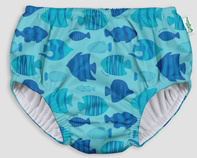Your Part in Helping Us Create Effective Swim Lessons
ARRIVE ON TIME
Plan on arriving ten to fifteen minutes before class start time. This allows for bathroom, swim equipment (caps, goggles) and applying sun block. Often our lessons are booked back-to-back - out of respect for each student, we cannot delay or prolong a lesson beyond the allotted time.
EQUIPMENT
Swim caps are required for lessons in the LifeCycle pool for those who are putting their heads in the water and have hair. Minimizing hair in the water helps keep the water clean for all of our swimmers. Furthermore, loose hair can be distracting during a lesson. This protocol also helps acclimate students to general pool etiquette as community pools, such as the YMCA require caps. If a child is sensitive, try a stretch fabric style.
If lessons are in a private pool, swim caps are recommended for those who have medium to long hair to reduce distraction.
Goggles are recommended for ages 5+, but not required. Having goggles improves the visibility of underwater demonstrations, and helps protect the eyes from prolonged exposure to the water. That being said, students will learn to open their eyes under the water as a safety skill.
We have a curated selection of caps and goggles on SwimOutlet.com.
FINISH EATING AT LEAST ONE HOUR BEFORE LESSON STARTS
Water puts pressure on the tummy, which can upset a full stomach. Students with an upset stomach will need to exit the pool to maintain safety for the student, and to avoid pool contamination. Any student who demonstrates body language consistent with stomach aches or vomiting will be asked to exit the pool and receive instruction via demonstrations while we determine if it is safe for them to be in the water.
USE BATHROOM FACILITY JUST PRIOR TO ENTERING THE POOL
Leaving the lesson for a bathroom break will cut into lesson time...and also teaches them that they cannot go in the pool.
SHOWER BEFORE ENTERING THE POOL
Showering before entering the pool helps keep the pool clean for everyone, and reduces the risk of water related illnesses (RWI's).
PROTOCOLS FOR NON-POTTY TRAINED SWIMMERS
An “accident” in the pool requires us to close the pool for 2-3 hours and chemically "shock" the pool to make it safe for swimming to prevent the spread of RWI's (recreational water illness). To help avoid this situation, please follow these rules:
1. Check diapers immediately prior to class.
2. Students who aren't toilet trained must wear three layers of protection:
Plan on arriving ten to fifteen minutes before class start time. This allows for bathroom, swim equipment (caps, goggles) and applying sun block. Often our lessons are booked back-to-back - out of respect for each student, we cannot delay or prolong a lesson beyond the allotted time.
EQUIPMENT
Swim caps are required for lessons in the LifeCycle pool for those who are putting their heads in the water and have hair. Minimizing hair in the water helps keep the water clean for all of our swimmers. Furthermore, loose hair can be distracting during a lesson. This protocol also helps acclimate students to general pool etiquette as community pools, such as the YMCA require caps. If a child is sensitive, try a stretch fabric style.
If lessons are in a private pool, swim caps are recommended for those who have medium to long hair to reduce distraction.
Goggles are recommended for ages 5+, but not required. Having goggles improves the visibility of underwater demonstrations, and helps protect the eyes from prolonged exposure to the water. That being said, students will learn to open their eyes under the water as a safety skill.
We have a curated selection of caps and goggles on SwimOutlet.com.
FINISH EATING AT LEAST ONE HOUR BEFORE LESSON STARTS
Water puts pressure on the tummy, which can upset a full stomach. Students with an upset stomach will need to exit the pool to maintain safety for the student, and to avoid pool contamination. Any student who demonstrates body language consistent with stomach aches or vomiting will be asked to exit the pool and receive instruction via demonstrations while we determine if it is safe for them to be in the water.
USE BATHROOM FACILITY JUST PRIOR TO ENTERING THE POOL
Leaving the lesson for a bathroom break will cut into lesson time...and also teaches them that they cannot go in the pool.
SHOWER BEFORE ENTERING THE POOL
Showering before entering the pool helps keep the pool clean for everyone, and reduces the risk of water related illnesses (RWI's).
PROTOCOLS FOR NON-POTTY TRAINED SWIMMERS
An “accident” in the pool requires us to close the pool for 2-3 hours and chemically "shock" the pool to make it safe for swimming to prevent the spread of RWI's (recreational water illness). To help avoid this situation, please follow these rules:
1. Check diapers immediately prior to class.
2. Students who aren't toilet trained must wear three layers of protection:
- Layer #1: Disposable swim diaper against the skin, then...
- Layer #2: Reusable swim diaper on top of the disposable, then...
- Layer #3: Bathing suit


